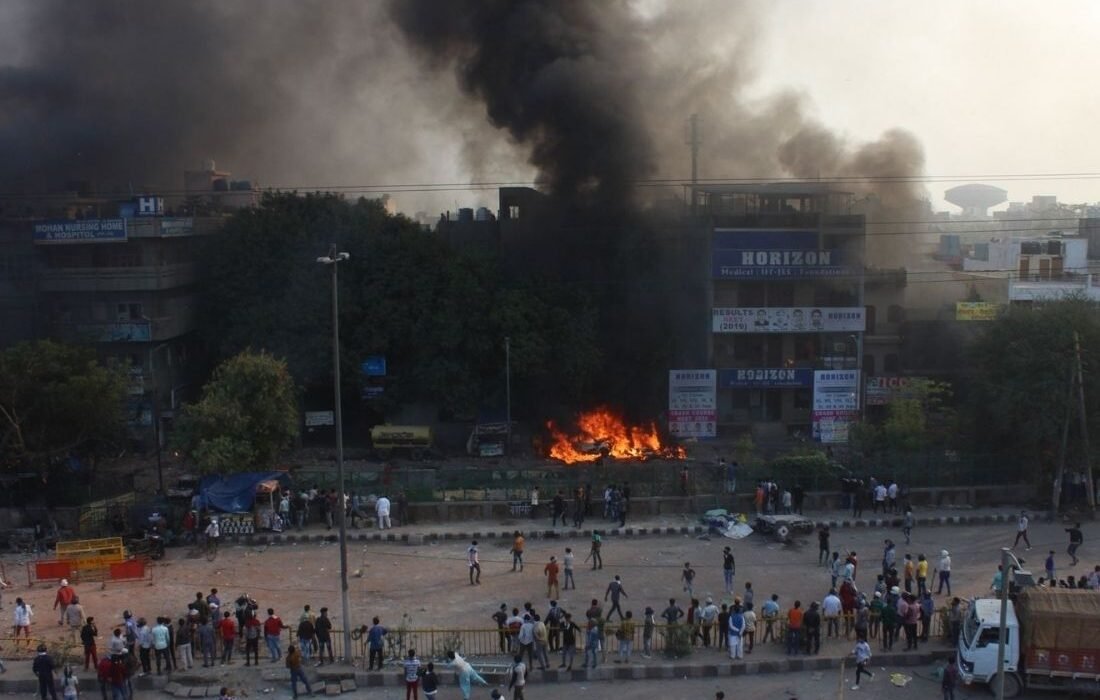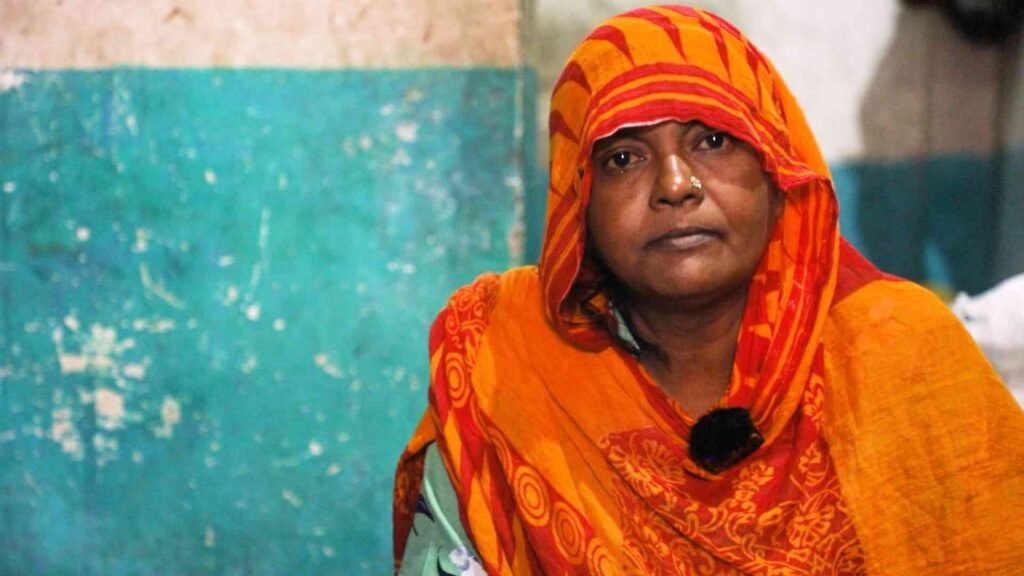Shafi Alam set up a small shop of stationery on the ground floor of his own house in Gali No. 4, Khajuri. Some portions of the ground floor were under construction, on the side, a small set of stairs set the entrance to his house. On the first floor, the whole family of three-generation lived together, and the terrace was home to goats. Before 10 days, he was blessed with a daughter, his married sister was with the family too in this blissful moment.
It was a normal evening until they heard shouts from the streets. From the balcony, he could see the street under ruckus by a mob, dressed in helmets and equipped with rods and lathis while a faction of them came around swinging stones. This sight was enough to imagine the aftermath, Shafi Alam was a Muslim, it was enough for him to become a target of the mob. Shafi Alam ran inside and rushed the entire family indoors, all the doors were locked. Shafi Alam had two children in his house, his parents, his two sisters, and one brother; minutes before they were living and now seconds later, they could be very close to death.
He recalls, “First, they throw some sort of petrol bomb aimed at my shop, then came the another. The frontline of the kept books caught fire. There were some copies of Quran and Islamic texts which started to burn. We could not extinguish the fire because they would have continued the petrol bombs anyway, we cleared the pieces of Quran which we could while the other stuff burned.” His family made some emergency calls to the neighbours for rescue. Meanwhile, he was able to restraint the fire inside the house. Through the help of a Muslim family, they escaped from their terrace and reached Chandu Nagar.
After the escape, his family had to live in Chandu Nagar in an arranged shelter with the other survivors. The danger of going back to Khajuri was life-threatening. So, in the daytime, they used to visit their charred homes and shops and worked for rehabilitation, the nights were passed in shelters. With passing days, the affected were accepting the terms of their living and settling back in their homes which they saw going up in flames. Ration received from the relief was being set up in shattered cupboards amidst seared walls.
Through a local point of contact, we met Shafi Alam in Khajuri in the aftermath of the pogrom. He helped us to earmark the survivors of the pogrom and facilitated the relief work. “The men from the group used to stay in this one room, it was a lot of us, we had to sleep in shifts”, he recalled while helping us with the distribution of the ration from that shelter which was his refuge from a callous Hindutva mob. On meeting his family, we came across so many stirring stories; his mother made chai for us on the roof of his blazed shop, his young sister aspires to be in a good University, his little baby is pampered by the neighbours who saved their lives, and we met their pet goat who did not run away with the rest of the freed lot.



